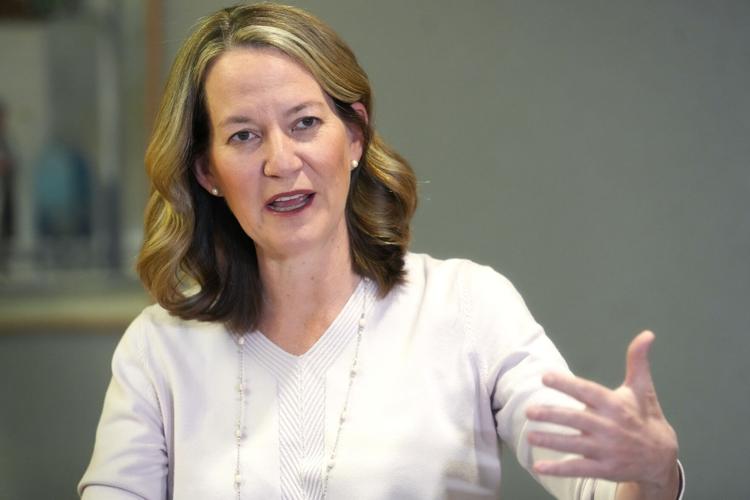The indictment of Donald Trump was still days off when former Arizona Attorney General Mark Brnovich pronounced some thoughts on the prospect.
He decried politicization in officials’ decisions of which cases to file, ironically enough.
“They’re trying to score political points for themselves personally,” Brnovich said of New York prosecutors, on the March 28 edition of a podcast called Rich Valdes America at Night. “They’re essentially prosecuting cases where they don’t even think they can win because they don’t have the evidence, they don’t have the facts. They just want to do it for political reasons.”
This, of course, has become the Republican party line since Trump was indicted — it’s a bogus case brought by a Democratic district attorney seeking political advantage. What’s ironic is that’s similar to what Brnovich did with his power as Arizona’s attorney general in 2021 and 2022 as he ran unsuccessfully for the GOP nomination for U.S. Senate, filing lawsuits willy-nilly, some with ridiculous arguments, to score political points.
Abusing power further, apparently for political reasons, Brnovich withheld reports by his own investigators, concluding there was no evidence of significant electoral fraud in 2020, even while he maintained publicly that such evidence existed. His successor, Democrat Kris Mayes, revealed that in February.
Mayes, inevitably, will also be accused of politicizing the office at some time — the accusation comes with the territory. The point, though, isn’t that all the elected prosecutors and attorneys general abuse their power for political gain and we should just get used to it. That would be cynical and wrong.
The point is that political cases, civil and criminal, are inherent to these positions, and we should judge them on their merits and their context. If a prosecutor never brought a case with political implications, corruption would never be confronted and public office would be a risk-free crime-spree. A government could impose any policy, constitutional or not, without resistance.
Determining when an attorney general or elected prosecutor has overstepped into politicization, though, is more art than science and requires information for us to evaluate. While information is something we’re still lacking in the Trump case, we accumulated plenty over time on Brnovich.
Biden policies targeted by Brnovich
In Brnovich’s last years as attorney general, after Joe Biden became president, he filed lawsuit after lawsuit against the federal government, often over border policies, or awkwardly bringing immigration issues into unrelated complaints. He once challenged a Biden administration vaccine mandate on U.S. employers on the basis that vaccines weren’t also being mandated for border crossers.
But not all his anti-Biden lawsuits rose to the level of preposterous politicization. Brnovich filed suit in February 2021 to challenge the constitutionality of the administration’s 100-day pause in removals from the country. The argument was that failing to deport anyone, even convicted criminals in the country illegally with removal orders, violated federal law.
It was clearly a political statement that would benefit Brnovich, but the suit at least made a frontal challenge to a policy that arguably could hurt Arizonans.
You couldn’t say the same about Brnovich’s absurd April 2021 lawsuit: He argued that halting border-wall construction and ending the Remain in Mexico program violated the National Environmental Policy Act. It was a ridiculous argument, basically an act of trolling, because building the border wall itself was environmentally devastating and was carried out through waiving environmental laws.
To argue that stopping the wall violated environmental laws and damaged the environment turned reality on its head.
Brnovich’s office filed more than a dozen of these cases, issuing press releases even when they amended the lawsuits a few months later.
Many of those lawsuits are gone now. Mayes, has been systematically going through Brnovich’s campaign-style lawsuits and dismissing them or removing Arizona from them in multi-state cases — at least 13 so far.
Political motivation not always obvious
On Friday, radio host Bill Buckmaster and I interviewed Mayes on his show and asked her about those Brnovich-era actions.
“We’re really trying to depoliticize this office,” she said. “We’ve been withdrawing from a lot of these, what I consider to be, highly political lawsuits and frankly a waste of taxpayer dollars.”
When I asked her if politicization is inherent to offices such as hers, on one side or the other, she said, “I think it’s a matter of scale and a matter of focus.”
“Obviously I will be litigating on behalf of the people of Arizona,” she added. “But when I do that, I’m going to come at it from a lens of is this in the public interest, is it constitutional, is it going to better the state of Arizona and is it an area that the attorney general has historically acted in?”
When Buckmaster asked about the Republicans’ “witch-hunt” claims over the Trump prosecution, Mayes wouldn’t say much. “I guess courts are going to decide that question,” she said.
There is time for this sort of consideration in the Trump case — we haven’t even seen the indictment yet! I know it took months of following Brnovich’s filings for me to conclude he was abusing his office for political gain and should resign. (He didn’t act on my suggestion.) If Mayes goes down that path, that too, will take time to figure out.
And certainly, the former AG’s judgment that politicization led to Trump’s indictment is worth no more than my suspicion that the indictment is the result of a many-year crime spree finally catching up to him now that he’s lost the protection of the presidency.




